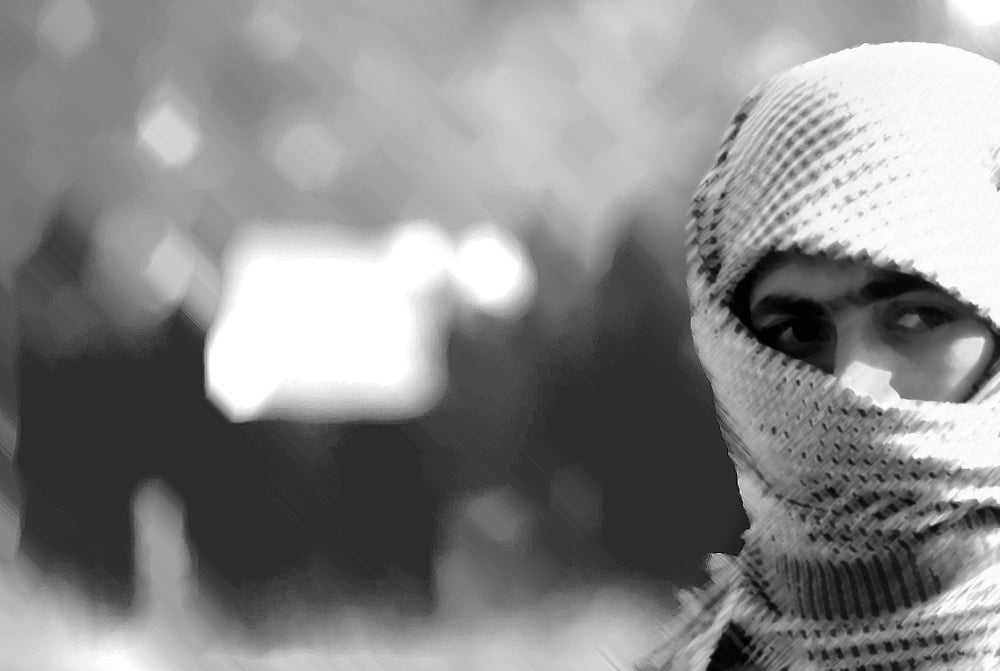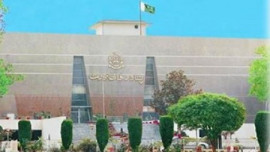
Despite being the first among seven political agencies and six Frontier regions to start political campaigns for the 2013 general elections, the Taliban’s decade-long presence in South Waziristan’s NA-41 and NA-42 constituencies has left little room for left-wing political parties to support their candidates. This lack of freedom has been unfazed even by the extension of the Political Parties Act to the Federally Administered Tribal Areas (Fata) in 2012.
In the 2002 general elections, both candidates who won from NA-41 and NA-42 were independents. Maulana Abdul Malik Wazir and Maulana Mirajuddin Mehsud both joined the Jamiat Ulema-e-Islam-Fazl (JUI-F) after wining the elections. In 2008, Wazir won again from NA-41, but NA-42 did not hold elections due to military operations in the Mehsud areas. While the JUI-F may have won repeatedly in the area, left-wing parties attributed the victories to silent backing from the Taliban.
NA-41
Ali Muhammad Khan, 39, bitterly describes the reality of politics in the war-torn tribal regions. “I want to cast my vote with freewill and in favour of the best candidate, but it will not be so,” he says, while working on his tomato field. “I am left with little options for who to vote for because of the law and order in the area.”

The farmer’s apprehension is understandable. A few months ago, a JUI-F delegation including former Khyber-Pakhtunkhwa (K-P) chief minister Akram Khan Durrani, Maulana Muhammad Qasim, Mufti Abdul Shakoor and Maulana Attaur Rehman visited Wana and held meetings with local party leaders and workers. The presence of dangerous militants in the area has since long prevented political leaders from visiting Fata, but this does not seem to apply to JUI-F leaders who can comfortably conduct election campaigns in the region.
However, even though the JUI-F is relatively secure in Fata, local tribes, especially people from parties with support from the youth, such as the Pakistan Tehreek-e-Insaaf (PTI), are continuing their efforts against Maulana Fazlur Rehman’s group.

The PTI has set up an election office in Rustam Bazaar Wana, and chief organiser of the party’s South Waziristan chapter, Ajab Gul Wazir, also inaugurated a sub-election office in Shakai tehsil village. The PTI’s election candidate for NA-41 will either be chosen by Imran Khan or emerge from the party’s own election process. However, despite the fact that a candidate has not yet been appointed, the party’s election campaign, which is supported by the educated section of society, is in full swing. As yet, there have been no warnings issued by Mullah Nazir’s militant group curbing political activities in the area.
NA-41, which comprises Birmal, Toi Khula and Wana tehsils, is now far ahead in the election race as compared to Fata’s other constituencies.
Former MNA Abdul Malik Wazir has been nominated as the (JUI-F) candidate for NA-41 once again. However, he faces an uphill battle for two reasons. Firstly, he has failed to conduct any important public welfare projects in his five-year tenure. Then, the changing attitude of the public means he will face tough resistance from moderate tribesman who want a change in the area. The current election year may be his year of defeat.

Despite a shift in attitudes, it is too difficult for left-wing groups like the Awami National Party (ANP) to conduct an election campaign. Whether someone will come forward to contest the election on an ANP ticket or not will become clearer in a few days.
Though he has not announced his political affiliation to the public, Ali Wazir is conducting a steady campaign. He held a huge public gathering in Azam Warsak after Eidul Fitr where he addressed tribesmen and asked them to vote for him. Ali is the son of late Malik Mir Zalam, chief of the Ahmadzai Wazir Tribe. Zalam, his two brothers, son and nephew were killed near Wana Bazaar in July 2005.
Other independent candidates, such as businessman Nasirullah Wazir, are also busy trying to build up a vote bank. Wazir claims he will do a great deal of public welfare work if elected. However, instead of public gatherings it seems religion, tribal affiliation, and the peculiar situation in the region will play a more important role in deciding the polls.
NA-41, however, remains Fata’s only constituency in which election campaigns are gaining momentum.
NA-42 prepares for elections after 11 years
In the 2002 elections, Maulana Mirajuddin won as an independent candidate, but, like his counterpart in NA-41, he joined the JUI-F after winning. Mirajuddin was later killed by unidentified people in Tank.
In 2008, no elections were held in the constituency due to a military operation in the region against Baitullah Mehsud, founder of the Tehreek-e-Taliban Pakistan.
Currently, members of the Mehsud tribe, who were displaced as a result of Operation Rah-e-Nejat in 2009, have settled as internally displaced persons (IDPs) in Tank and DI Khan.
Saleh Shah Mehsud, a senator affiliated with the JUI-F, held a jirga with the Mehsud tribe in DI Khan. He appealed to the Election Commission of Pakistan to set up polling stations in the districts to ensure that displaced tribesmen have the opportunity to avail their right to vote.
Unlike the situation in 2008, when the Mehsud tribe was under the influence of Baitullah Mehsud, this time the tribesmen are free from Taliban pressure. Residing in Tank and DI Khan, they will be able to freely cast their ballots. Political parties are also freer in the region as compared to NA-41.
Dilawar Khan Mehsud is contesting elections as a Pakistan Muslim League-Nawaz candidate, while Brigadier (Rtd) Qayum Sher Mehsud is standing as an independent candidate.
However, the PTI remains at the forefront with Dost Muhammad Mehsud, Jawad Iqbal Mehsud, Badshahi Khan and Malik Qayum. So far, just like in NA-41, it has not been ascertained which of the four leaders will represent the PTI.
JUI-F’s Jamaluddin will contest elections from NA-42. The party’s victory in the 2002 elections in the region was attributed to the Taliban’s support. This time, with limited militant presence in Tank and DI Khan, the JUI-F could be facing the polls with a much smaller vote bank.
Additionally, the Barki tribe of Kani Guram held a jirga in which tribal elders decided they would nominate their own candidate, former chief secretary Abdul Rahim. The Barki tribe is also settled as IDPs in Tank and DI Khan.
There are dozens of candidates who have come forward to contest elections from the NA-42 constituency. Once the PTI candidate is decided, the political climate in the region will become clearer.
Published in The Express Tribune, March 18th, 2013.
COMMENTS (5)
Comments are moderated and generally will be posted if they are on-topic and not abusive.
For more information, please see our Comments FAQ





























1713853507-0/MalalaHilary-(2)1713853507-0-270x192.webp)








Real Political situation of south waziristan, must read
juif takes support of taliban for electioneering while pti depends upon youth.
Well done Real and true representation of the current scenario of south waziristan. This article elaborated the ongoing political situation and clear the ambiguities in minds. Wishing peace and prosperity in South Waziristan. SHARIF
the writer presented the real picture of the area